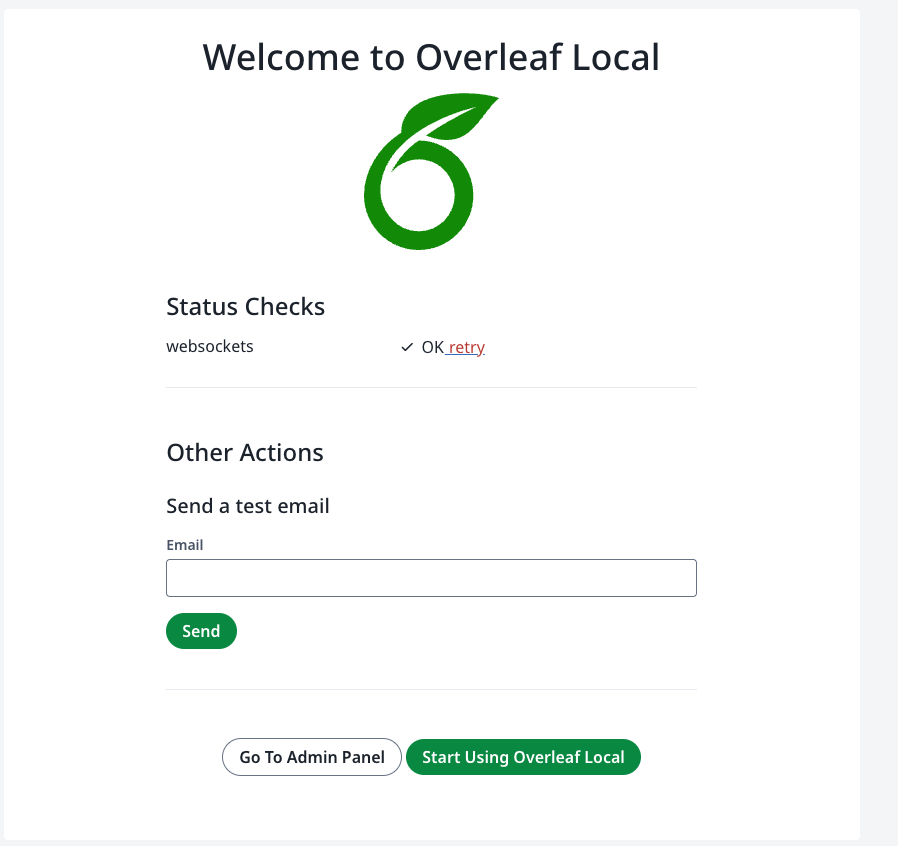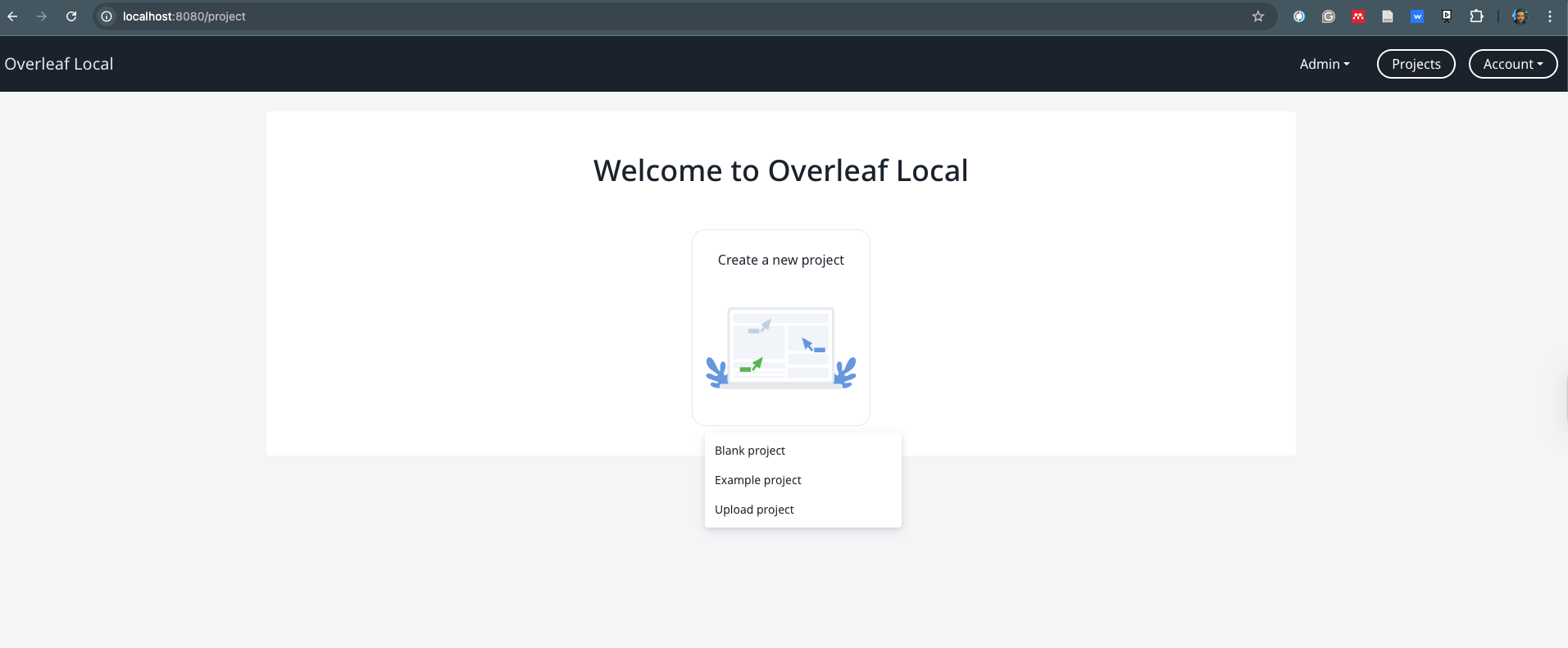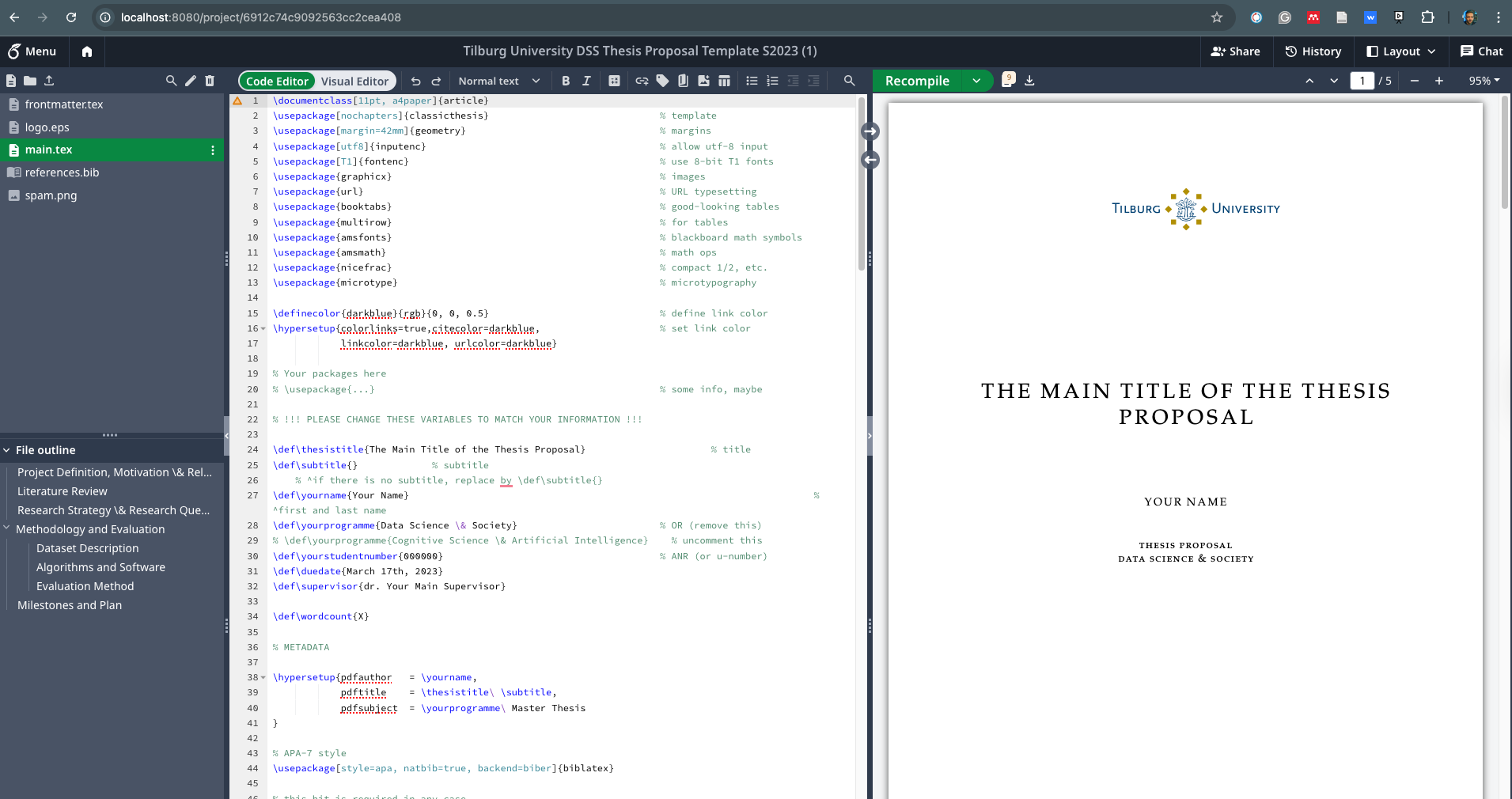Guide to Using Overleaf Locally
ℹ️ About this guide
This guide walks you through installing and running Overleaf Community Edition (CE) entirely offline on your own computer — with all major LaTeX packages pre-installed and ready to use.
Since Overleaf recently restricted free compilation times, many students struggle to complete their theses or projects. This guide helps you set up a fully functional local Overleaf, so you can compile your work without limitations.
☠️ Let op: Always back up your projects on disk — deleted projects cannot be recovered.
🐋 Install Docker
💡 You only need to do this once.
- Go to https://www.docker.com/products/docker-desktop
- Download Docker Desktop for your OS (Windows / macOS / Linux).
- Install and start Docker Desktop.
- Verify installation by running:
docker --version
🚀 Run Overleaf Locally
1️⃣ Clone the repository
git clone https://github.com/JoyeBright/overleaf-docker.git
cd overleaf-docker
2️⃣ Make the launcher executable
Run this once to fix permissions:
chmod +x start-overleaf.sh
3️⃣ Start Overleaf
./start-overleaf.sh
4️⃣ Open your browser
Go to http://localhost:8080
5️⃣ Create your admin account (first-time setup)
Visit http://localhost:8080/launchpad
➡️ Add a username and password
Then return to http://localhost:8080 to log in.
6️⃣ Welcome Screen
You’ll see “Welcome to Overleaf Local” — click on “Start Using Overleaf” to enter the editor.

6️⃣ Import or Create Your Thesis Project
Once logged in:
-
Click “Create a new project → Upload Project” to import your
.zipor.texproject. Example: DSS Thesis Information or choose “Blank Project” to start from scratch.

📁 Files in This Project
| File | Description |
|---|---|
docker-compose.yml |
Defines Overleaf, MongoDB, and Redis containers |
start-overleaf.sh |
One-click launcher script |
🧰 Useful Commands
| Action | Command | When to use it |
|---|---|---|
| 🛑 Stop Overleaf | docker stop overleaf |
When you want to temporarily stop the Overleaf container (e.g., for maintenance or updates). |
| 🚀 Start Overleaf | docker start overleaf |
When you want to restart the previously stopped Overleaf container without rebuilding it. |
| 🔄 Restart Overleaf | ./start-overleaf.sh |
When you want to fully restart Overleaf — this stops and recreates all containers using the configuration in the script. ⚠️ Be aware that all projects, users, and settings (including your thesis project) will be permanently removed. |
| 🧹 Remove all Docker data | docker system prune -a --volumes -f |
⚠️ Use with extreme caution — this deletes all Docker containers, images, and volumes system-wide, not just Overleaf. Only use if you want a completely clean Docker environment. |
💬 Questions & Help
All the necessary LaTeX packages are already installed to work smoothly with your thesis template. However, if you notice that something is missing or you encounter an error, please let us know via a Github issue.
If you run into any issues, please:
- Open an issue here: github.com/JoyeBright/overleaf-docker/issues
💡 Tip: Include your OS (Windows/macOS/Linux) and the error message for faster support.
